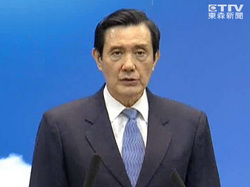
The revelation has put the methods used to approve wiretapping under intense scrutiny, particularly by people who are well-placed to do something about it: the legislators themselves. Suddenly, individual privacy and especially proper judicial procedure are hot issues for discussion.

The Ministry of Justice has formed a task force to investigate the wiretapping allegations, and Huang has already been grilled by members of the legislature over the matter. Then there is the separate leak investigation opened by the Taipei District Prosecutor's Office, for which Huang, President Ma, Ma's former deputy secretary Lo Chih-chiang (羅智強), and Premier Jiang have all been summoned to give testimony. To complicate matters further, the Control Yuan (檢察院), an odd and increasingly irrelevant relic of the original Sun Yat-sen-designed constitution that is supposed to monitor government behavior, has joined the fun and broadened its own investigation of "improper influence" by officials. In case you've lost count, that's three separate investigations that Huang Shih-ming has triggered in the past week.
With all the controversy swirling around him, Huang has not fallen on his sword to protect Ma Ying-jeou, either, doing little to dispel the impression that his actions were closely coordinated with the Presidential Office and seeming more interested in saving his own skin. Ma’s popularity ratings are pretty dismal, registering at 15% in some recent polls. Ma, for his part, has denied trying to influence the Special Investigative Division's actions.
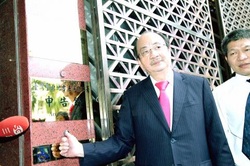
Lest the DPP gain too much enjoyment out of the KMT's turmoil, allegations of malfeasance against one of their own were also in the news this week. Tsai Ying-wen (蔡英文), the DPP's former party chairwoman and 2012 presidential candidate, was censured by the Control Yuan for "dereliction of duty" in her role as vice premier in 2007. Tsai approved government investments in a biotech start-up that totaled about US $1.4 billion, then later worked as a spokesperson for the company after leaving government. Notably, the same Special Investigative Division that's now in hot water over wiretapping closed its investigation into the Tsai case in August 2012, finding no evidence of wrongdoing. That fact plus the timing of the announcement suggests a possible political motive behind the decision, and may generate more interest in the DPP in abolishing the Control Yuan.
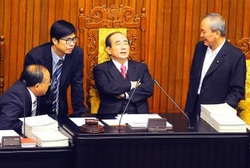
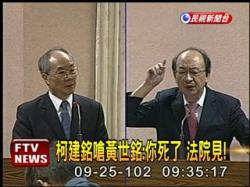
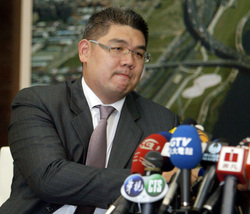
 RSS Feed
RSS Feed
